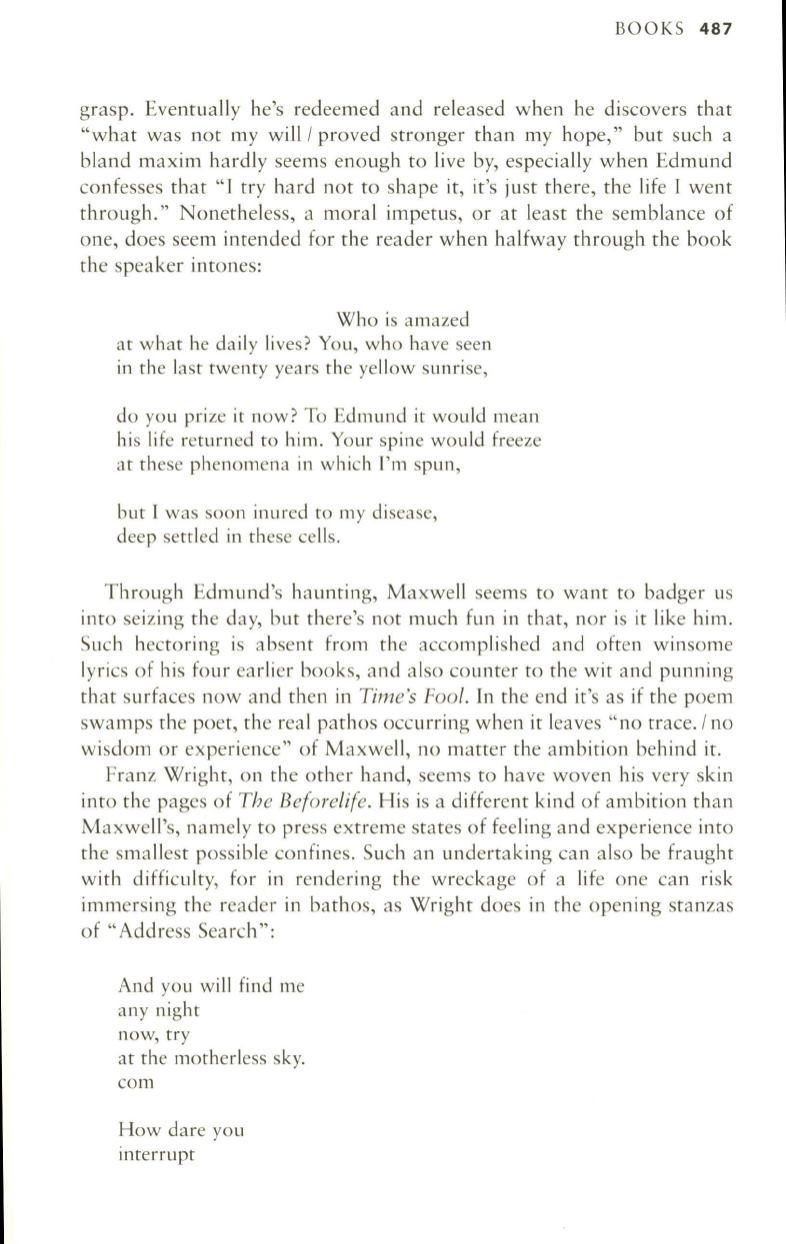
BOOKS
4 8 7
grasp. Eventually he's redeemed and released when he discovers that
"what was not my will ! proved stronger than my hope," but such a
bland maxim hardly seems enough to live by, especially when Edmund
confesses that "I try hard not to shape it, it's just there, the life I went
through." Nonetheless, a moral impetus, or at least the semblance of
one, does seem intended for the reader when halfway through the book
the speaker intones:
Who is amazed
at what he da ily lives? You, who have seen
in the last twenty years the yellow sunrise,
do you prize it now? To Edmund it would mean
his life returned
to
him. Your spine would freeze
at these phenomena in which I'm spun,
but I was soon inured to my disease,
deep settled in these cells.
Through Edmund's haunting, Maxwell seems
to
want to badger us
into seizing the day, but there's not much fun in that, nor is it like him.
Such hectoring is absent from the accomplished and often winsome
lyrics of his four earlier books, and also counter to the wit and punning
that surfaces now and then in
Time's Fool.
In the end it's as if the poem
swamps the poet, the real pathos occurring when it leaves "no trace. ! no
wisdom or experience" of Maxwell, no matter the ambition behind it.
Franz Wright, on the other hand, seems to have woven his very skin
into the pages of
The Beforelife.
His is a different kind of ambition than
Maxwell's, namely to press extreme states of feeling and experience into
the smallest possible confines. Such an undertaking can also be fraught
with difficulty, for in rendering the wreckage of a life one can risk
immersing the reader in bathos, as Wright does in the opening stanzas
of "Add ress Sea rch":
And you will find me
any night
now, try
at the motherless sky.
com
How dare you
interrupt


